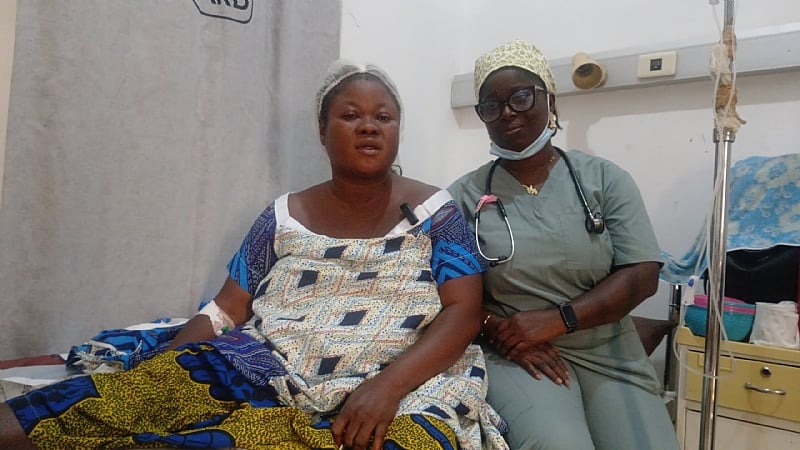The heartwarming story of Harriet Oteng, a principal certified registered anaesthetist, and her life-saving intervention for a pregnant trader, Grace Siawu, underscores the dedication and vital role of anaesthetists in Ghana’s healthcare system. Ms. Oteng’s actions, which took place outside of her official working hours, demonstrate a commitment to patient well-being that extends beyond the confines of the hospital. Encountering Ms. Siawu collapsed and struggling to breathe at a local market, Ms. Oteng immediately assessed the situation, provided initial first aid, and personally transported the distressed woman to the Ada East District Hospital. This swift and decisive action paved the way for Ms. Siawu’s safe delivery of a healthy baby boy the following day, a testament to Ms. Oteng’s professionalism and compassion.
The incident not only highlights the crucial role of anaesthetists in emergency situations but also emphasizes the importance of their specialized skills in ensuring patient safety and positive health outcomes. Ms. Oteng’s initial assessment involved checking Ms. Siawu’s antenatal card and ruling out potential complications like diabetes before administering a sugary drink to stabilize her condition. Recognizing the need for further medical attention, Ms. Oteng prioritized the patient’s well-being over her personal errands, putting her in her own car and driving her to the hospital. This proactive approach prevented potential complications and ultimately ensured a successful delivery.
The gratitude expressed by Ms. Siawu, along with the accolades from onlookers at the market, speaks volumes about the impact of Ms. Oteng’s actions. Ms. Siawu lauded Ms. Oteng’s dedication as a model for all healthcare professionals, emphasizing the importance of prioritizing patient care, regardless of whether one is officially on duty. Market traders and shoppers who witnessed the event echoed this sentiment, praising Ms. Oteng’s selflessness and highlighting her as an exemplary figure of dedication within the medical community. Their observations underscore the positive influence such actions have on public perception of healthcare professionals and the ripple effect of compassionate care.
The incident has also brought to the forefront the broader issue of recognition and career advancement for anaesthetists within Ghana’s healthcare system. While anaesthetists play a crucial role in surgical procedures, pain management, and patient resuscitation, their contributions are often overlooked when it comes to leadership opportunities. Ms. Oteng, speaking on behalf of her profession, highlighted the significant responsibility anaesthetists shoulder in ensuring patient safety during surgery and facilitating their safe return to their families. Despite this critical role, she pointed out the lack of consideration given to anaesthetists for managerial positions within the healthcare hierarchy.
Ms. Oteng’s appeal to the government centers on the need for greater recognition of the specialized expertise and significant responsibilities inherent in the anaesthesiology profession. She advocated for the creation of pathways for anaesthetists to advance into leadership roles, emphasizing the value their skills and experience bring to healthcare management. This call for greater inclusion in leadership positions is not simply about professional advancement but about leveraging the specialized knowledge of anaesthetists to improve overall healthcare delivery and patient outcomes. By integrating anaesthetists into decision-making roles, the healthcare system can benefit from their unique perspectives on patient safety, pain management, and critical care.
In conclusion, the story of Ms. Oteng’s intervention is a powerful illustration of the dedication and expertise of anaesthetists in Ghana. Her actions, taken outside the formal setting of a hospital, exemplify the commitment to patient care that defines the medical profession. The incident has also served as a catalyst for a broader discussion about the role and recognition of anaesthetists within the healthcare system. It underscores the need to acknowledge their contributions, not only in surgical settings but also in leadership positions where their expertise can contribute to improved healthcare management and patient outcomes. The widespread praise and gratitude Ms. Oteng received highlight the profound impact of compassionate and skilled healthcare professionals and the importance of supporting their professional development and career progression.














